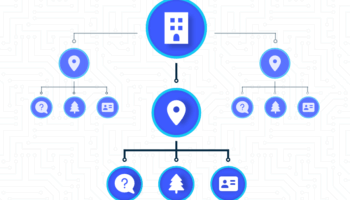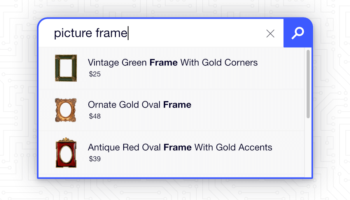For years, the goal was simple: get your business to the top of the search results page. But with the rise of AI, the search landscape is changing. People aren’t just clicking links; they’re asking questions and getting direct answers from powerful AI models. So, how do you make sure your business still gets seen?
It’s not about complex hacks, but about creating clear, helpful, and trustworthy content that AI can easily understand and share. In this guide, we’ll demystify how AI “thinks” and give you a simple roadmap to help your business get found.
How is AI Search Different From Traditional Search?
Traditional search is about keyword matching. You type in words in the search bar, and the search engine gives you a list of links to pages that contain those keywords. You’re the one who has to do the work of clicking through to find your answer.
AI search is about understanding intent. You ask a question, and using advanced AI models, it understands the context and meaning. It then provides you with a single, synthesized answer, often with citations, so you don’t have to visit multiple websites to find the answer you need.
What Does AI Look for In Content?
If AI isn’t just looking for keywords, what does it look for? AI is designed to mimic how a human expert would find and share information. The content that wins with AI is the content that wins with people.
Here are the three core principles you should focus on:
1) Be an Expert (and Prove It)
When a person searches for an answer, they want a trustworthy source. AI models work the same way. They are programmed to prioritize content that demonstrates expertise, authority, and trustworthiness, also known as E-E-A-T.
- Experience: Share your first-hand experience.
- Expertise: Showcase your knowledge, qualifications, and credentials.
- Authority: Your reputation and mentions from other trusted sites signal authority.
- Trustworthiness: Be accurate and transparent by citing credible sources and providing clear, honest content.
2) Speak Their Language
People don’t ask questions in search engines the way they used to. They’re not typing “web design pricing,” they’re asking, “how much does a new website cost?” AI is built to understand this natural, conversational language.
To get noticed, your content should:
- Answer questions directly: Use headings that are questions and provide clear answers. This makes it easy for an AI to pull out a perfect snippet.
- Use a natural tone: Write like you’re having a conversation with a client. Avoid jargon unless you explain it.
- Think in topics, not just keywords: Instead of writing one small article per keyword, create comprehensive articles that cover a topic in-depth.
3) Make It Easy to Find and Understand
AI is a sophisticated tool, but it still relies on a well-organized website to function. The better organized it is, the easier it is for anyone (human or AI) to find what they’re looking for.
- Structure Your Content: Use clear headings (H1, H2, H3) to create a logical flow. Use bullet points and numbered lists to break up information and make it scannable.
- Internal Linking: Link to other pages on your website to help users and AI navigate your site and understand the breadth of your expertise.
- Technical Health: Ensure your website loads quickly, works on mobile devices, and has a clean code structure. Strong core web vital scores are a necessity. A seamless user experience is a strong signal of quality to both users and AI.
Where Should I Start?
Feeling a little overwhelmed? Don’t be! The great news is that you don’t need to completely rebuild your website overnight. You can start making a difference right now with these simple steps.
- Create truly helpful content. This is the big one. Before you write or update anything, ask yourself: Is this content genuinely useful to my audience? Does it answer their questions completely? Does it provide a unique perspective or solve a problem they have? Content that is created to help people, not just to rank in search engines, is what will ultimately succeed.
- Review your top content. Find your most popular content. Is it as comprehensive as it could be? Can you add a new section, a list of bullet points, or a quick summary at the top to make it more digestible?
- Add an FAQ section to key pages. Think about the questions your customers always ask and create a dedicated FAQ section. This structure is perfect for AI and will help you get featured.
- Start writing with a conversational tone. When you write, imagine you’re explaining the topic to a friend or a new client. Use questions in your headings and provide clear, direct answers.
- Embrace internal linking. When you write about a topic, look for opportunities to link to other pages on your site. This helps both people and AI understand the depth of your expertise.
- Don’t forget your technical foundation. Ensure your website is fast and mobile-friendly. A good user experience is a powerful signal of quality to both search engines and AI. If you’re unsure, use Google’s PageSpeed Insights tool for a quick check.
By following this checklist, you’ll be well on your way to building a website that’s optimized for both traditional search and the new world of AI.
The world of AI search might seem complex, but the core principle is simple: create helpful, human-centered content. This is how you build a stronger, more visible online presence today.





